(photos courtesy of Frederic Gindrey)
Today, March 9, an extra-close new moon, also called a "Supermoon", created a higher-than-usual tide, which could be observed in the Gowanus Canal. The phenomenon, also called perigean spring tide, was captured in photos this morning at about 8:30 am by Carroll Gardener and friend Frederic Gindry.
The photos were taken from the Third Street Bridge and the Carroll Street Bridge and show that water level was extremely high.
As can be seen on the last photo, the high tide caused the canal to breach its bank at Second Street right next to the Lightstone Group's 700 unit residential development. The polluted water also appeared to be sweeping over parts of the new promenade in front of the development.
High tide will return tonight and will be even higher tomorrow, March 10th, before returning back to normal. Luckily, it is not going to rain in the next day or two. Otherwise, Gowanus residents would have a big problem.
However, it does not take a 'super moon' or a perigean spring tide to cause flooding at 2nd Street near the new development.
Friend Martin Bisi sent me the photos below, which he took the night of February 24th, after a day of steady rain. Again, one can clearly see that the Gowanus overflowed at 2nd Street and that the promenade is partly submerged in Gowanus water.
The Gowanus, of course, is an EPA Superfund, which means that contact with its polluted water is not a good idea.
Pretty scary stuff considering that the first tenants will be moving into the development within the next few weeks.


(photo credit: Martin Bisi)
****Update****
I took some more photos this morning, March 10th, at about 9 AM during high tide. I walked down Second Street towards the canal, but was stopped by construction workers. I was able to take the one photo below that shows some flooding from the canal near the building at 365 Bond Street . The crew did say that the water front promenade will be open to the public in early April. I also would like to share an email that I received this morning from Brian Carr of United States Environmental Protection Agency Region 2 regarding the spring tide and the photos of the Gowanus Canal. He writes:
The photos as described are unintentionally a bit misleading.
The end of 1st Street where the gravel is has not been completed, but will be an intertidal habitat area that is supposed to get wet. The bulkhead is lower in this spot on purpose. I believe it will planted when it is completed. It’s supposed to compensate for the encroachment of the new bulkhead into the canal.
The end of 2nd Street is the Sponge Park, which is still under construction I believe, so that street end is more open to flooding. Although I’m not 100% familiar with the final design, I’m pretty sure that this street end will be lower like 1st Street is, which is why the bulkhead steps down to 2nd Street. Part of the “Sponge.”
That said, the elevation change from the supertide to the Lightstone buildings is about 6 feet, and the water is indeed not clean, with contamination and pathogens.
That said, the elevation change from the supertide to the Lightstone buildings is about 6 feet, and the water is indeed not clean, with contamination and pathogens.
Here is a bit more about spring tides from Earth Sky.Org:
"Spring tides accompany March 2016’s supermoon. Will the tides be larger than usual at the March, April and May new moons? Yes, all new moons (and full moons) combine with the sun to create larger-than-usual tides, but perigee new moons (or perigee full moons) elevate the tides even more.
Each month, on the day of the new moon, the Earth, moon and sun are aligned, with the moon in between. This line-up creates wide-ranging tides, known as spring tides. High spring tides climb up especially high, and on the same day low tides plunge especially low.
The March 9 extra-close new moon will accentuate the spring tide, giving rise to what’s called a perigean spring tide. If you live along an ocean coastline, watch for high tides caused by the March, April and May 2016 new moons – or super moons."
Will these high tides cause flooding? Probably not, unless a strong weather system accompanies the perigean spring tide. Still, keep an eye on the weather, because storms do have a large potential to accentuate perigean spring tides.
"Spring tides accompany March 2016’s supermoon. Will the tides be larger than usual at the March, April and May new moons? Yes, all new moons (and full moons) combine with the sun to create larger-than-usual tides, but perigee new moons (or perigee full moons) elevate the tides even more.
Each month, on the day of the new moon, the Earth, moon and sun are aligned, with the moon in between. This line-up creates wide-ranging tides, known as spring tides. High spring tides climb up especially high, and on the same day low tides plunge especially low.
The March 9 extra-close new moon will accentuate the spring tide, giving rise to what’s called a perigean spring tide. If you live along an ocean coastline, watch for high tides caused by the March, April and May 2016 new moons – or super moons."
Will these high tides cause flooding? Probably not, unless a strong weather system accompanies the perigean spring tide. Still, keep an eye on the weather, because storms do have a large potential to accentuate perigean spring tides.







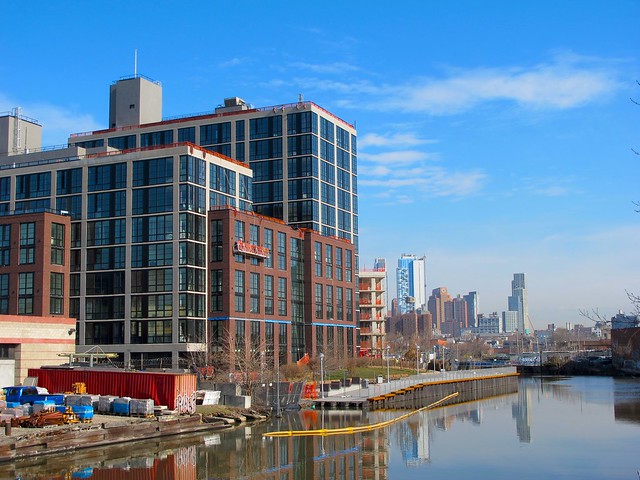
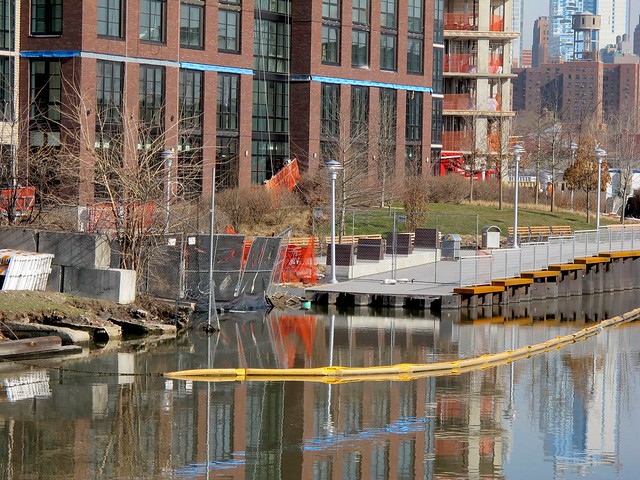
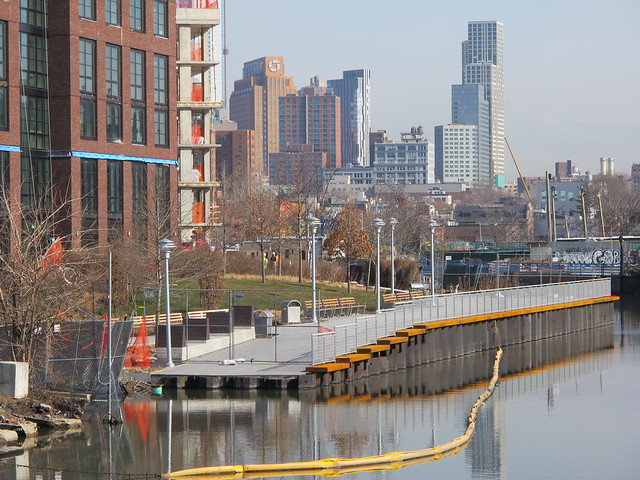
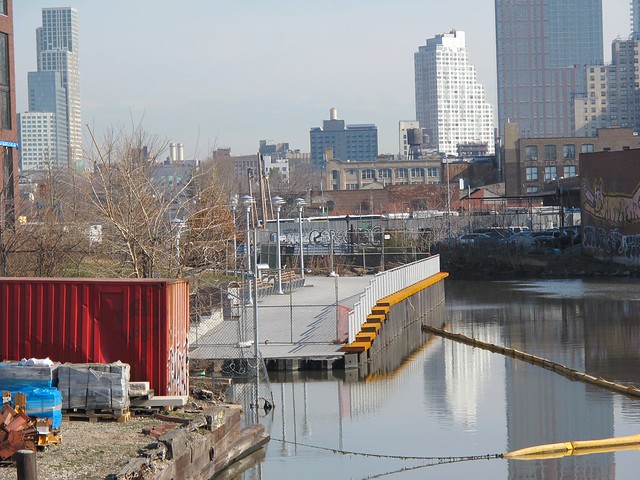
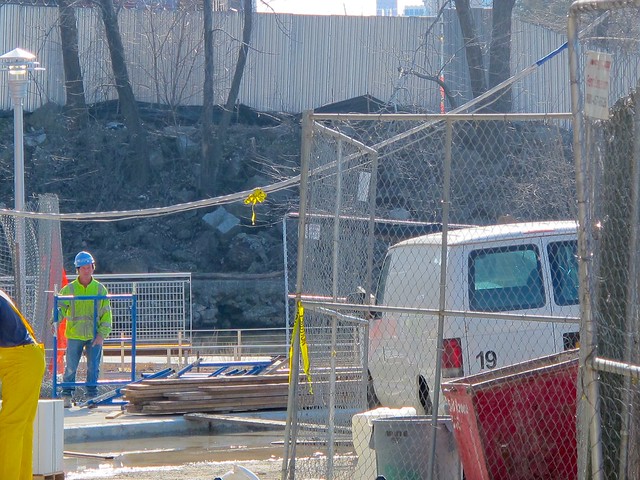
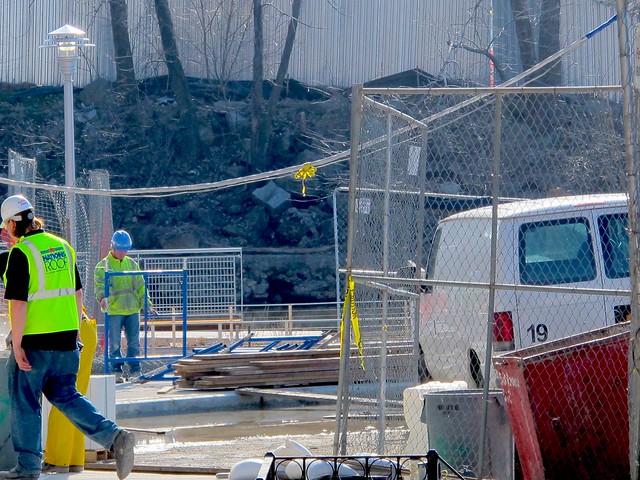
Tennants moving in?!? Already?! Fools.
ReplyDeleteNot a single one of these photos show any kind of "breach." The sponge park area at the end of 2d Street is designed to take on water during high tides and the promenade is designed to slope towards the water so it can be used as a boat launch again.
ReplyDeleteSeems like a non-issue. I don't see any problems here.
ReplyDelete